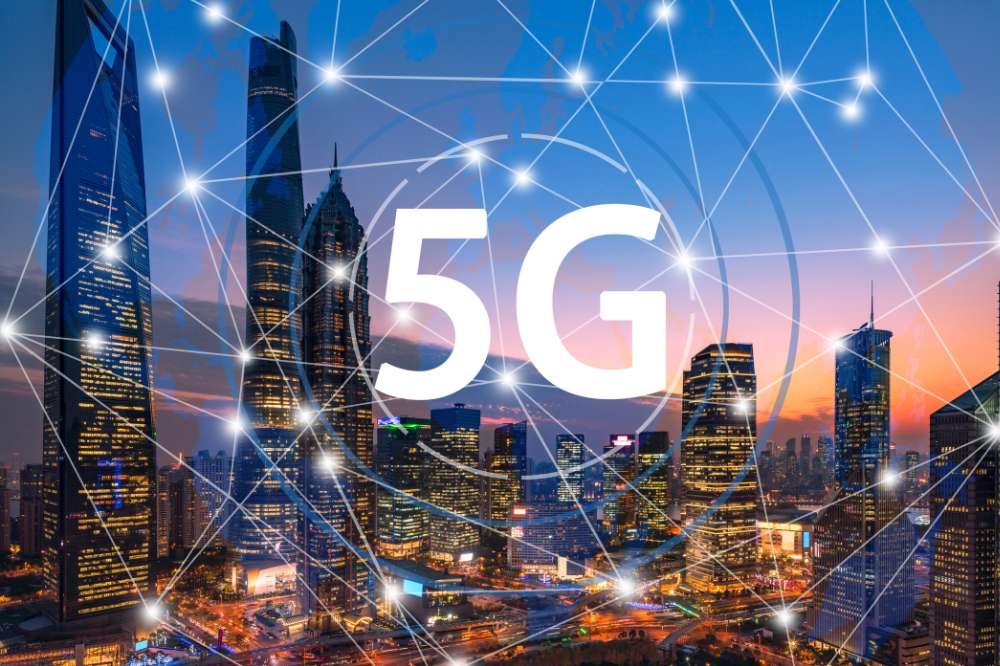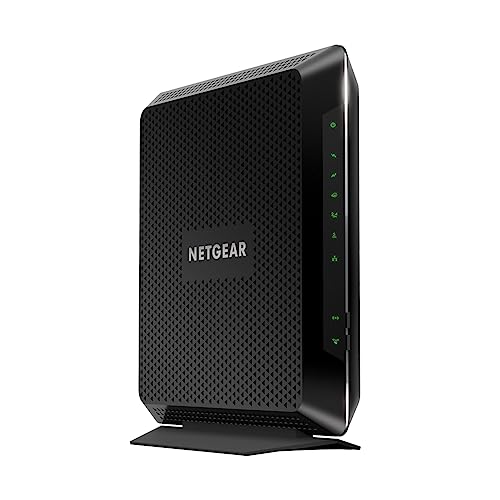If you are like most people, you are pretty familiar with 3G and 4G, but 5G is where it gets foggy. The world of 5G has been around for a while, but the area still seems new and unexplored.
What’s the internet speed like? Are there added features that are missing in the previous version? And is it as good as the mainstream media claim it to be?
Fortunately, we are here with answers. This blog post explores everything you should know about 5G wireless technology as of 2024.
What is 5G Wireless Technology?

- Compatible with major cable internet providers including Xfinity, Spectrum, Cox and more. NOT compatible...
- [Compatibility] 12V Power Supply Adapter Compatible with Netgear, Linksys, Asus,Motorola, Motorola/Arris...
Let’s start with the basics and know what the technology is to begin with. 5G is the 5th generation mobile network. As the name suggests, there are the 1st, 2nd, 3rd, and 4th generational mobile networks.
Also, the pattern is progressive, which means the 5th generation is way more advanced than the 4th. On that note, the 5th generation mobile network is the newest network that connects virtually everyone and everything.
5G wireless technology features are higher multi-Gbps data speeds, ultra-low latency, reliability, massive network capabilities, and a more uniform user experience. Higher and proficient efficiency are the traits that are common to 5th-generation mobile networks.
Who Created the 5G Wireless Technology?
No one company or individual is behind or owns the 5G wireless technology. However, a couple of companies in the mobile ecosystem are responsible for creating the 5G network.
Many companies are open about their involvement, while others are pretty low-key. Some notable mentions are Ericson, Qualcom, Huawei, and Nokia.
What Are the Differences Between Previous Generations and 5G?
Each generation of mobile networks differs tremendously from others. Knowing what the previous generation offered is vital to shed more light on what 5G gives users. The previous generations were 1G, 2G, 3G, and 4G. Here are the unique characteristics of each of them:
- First generation mobile network-1G: In the 1980s, the first generation mobile network offered analog voices.
- Second generation mobile network – 2G: Early 1990s: 2G provided digital voice such as Code Division Multiple Access (CDMA).
- Third generation mobile network – 3G: The start of 2000s: 3G brought about mobile data the way we know it (e.g. CDMA 2000).
- Fourth generation mobile network- 4G LTE: In 2010s: 4G LTE brought about an era of mobile broadband.
All the previous mobile network generations led to the new, more recent 5G network. The 5th generation mobile network is better suited to provide improved connectivity than ever before.
Moreover, the network is better equipped for air interface and supports next-generation user experiences, enabling new services to rise. 5G wireless technology will impact all major industries, including remote healthcare, agriculture, and digitized logistics.
How Does 5G Impact the Global Economy?
The 5G mobile network is significantly driving global economic growth. Wireless technology has created countless new jobs and caused a massive surge in economic output. What’s more, 5G is relatively new. That estimated type to reap all the benefits of 5G is forecasted to show by 2035.
The impact that 5G has had and will have is much more significant than that of previous generations. More so, the use case of the 5G network is expanding beyond its use in the telecommunications industry. In the coming years, we will see 5G incorporated into many other sectors, like the automotive ones.
An example is how the vehicle to surrounding technology might become optimized by including optimized. That aside, there are other emerging applications we should expect. Only time can tell how much of an influence 5G will have on the economy.
Other Use-cases of 5G Wireless Technology This Year and Beyond
The use cases of 5G wireless technology are numerous. There are several ways that ordinary people can use 5G technology. Simply, 5G will enable features like faster downloads, low latency, and better connectivity and capability to billions of devices.
The areas this wireless technology is sure to transform are virtual reality, artificial intelligence, and IoT (Internet of Things).
An example of how 5G technology will transform user experience is near-instant access to cloud services. More examples are the increased frequency of multiplayer cloud gaming, better shopping with augmented reality, and more.
Humans will have a redefined internet experience. How we socialize and do other things online is set to change. That’s the capability of 5G wireless technology and what we will likely gain when fully fleshed out.
How Fast is 5G Wireless Technology?
5G is said to be able to reach peak data rates or up to 20Gbps. However, the average speed is about 10Gbps, about 100 times faster than its predecessor, the 4G network. Additionally, the download speed of 5G is about 1.4 to 14 times faster than that of the 4G network.
However, 5G is not yet at its prime as we expect better specs as carriers advance their 5G network buildout. Aside from the speed, 5G also delivers much lower latency than 4G and has much more capacity.
Where Is 5G Wireless Technology Available?
The commercial 5G network is available in 61 countries, which is about an 80% increase since 2020 and keeps climbing. 5G wireless technology went live in 2019, and many major smartphone companies have started to make 5G-compatible devices.
Soon, more countries and, ultimately, more people will be able to access 5G technology. Some famous countries aside from the United States with 5G technology are Saudi Arabia, South Korea, Australia, Switzerland, Taiwan, Canada, Kuwait, Hong Kong, Germany, the Netherlands, and the United Kingdom. It is hard to predict when everyone will finally get access to the 5G network. However, we know it will be much faster than it was with 4G.
5G went live in 2019, and many spectators are enthused about its capability and possibility. While the understanding around 5G technology might look foggy, it gets better with more accessibility.
The wireless technology provides incredible perks and opportunities and, from a consumer perspective, promises faster downloads and a more engaging internet experience.





